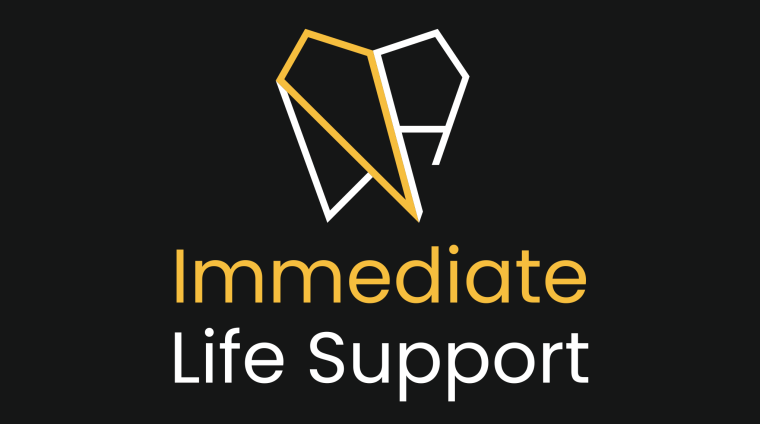Learning Objectives
1.Understand Immediate Life Support Principles:
- Define immediate life support (ILS) and its importance in emergency medical situations.
2.Recognize Medical Emergencies:
- Identify common medical emergencies encountered in dental practice, including cardiac arrest and airway obstruction.
3.Apply the ABCDE Approach:
- Utilise the ABCDE (Airway, Breathing, Circulation, Disability, Exposure) approach to assess and manage deteriorating patients effectively.
4.Perform High-Quality CPR:
- Demonstrate the skills necessary for performing high-quality cardiopulmonary resuscitation (CPR) and using an Automated External Defibrillator (AED).
5.Administer Emergency Medications:
Understand the indications for and administration of emergency medications during critical situations.
6.Recognize Vital Signs:
- Monitor and interpret vital signs to assess patient condition and response to interventions.
7.Implement Teamwork and Leadership Skills:
- Develop non-technical skills necessary for effective teamwork and initial leadership in emergency scenarios.
Course Description
This is a certified ILS course accredited by the UK Resus Council. This CPD course meets the criteria for the General Dental Council’s development outcomes. This course includes medical emergencies as set out by the GDC in the dental practice and also includes the latest CPR and Coronavirus recommendations.
The aim is to train healthcare personnel to manage patients often in life threatening conditions such as cardiac arrest until the arrival of paramedics or EMTs. The course is run over one day and consists of lectures and practical sessions.
What is immediate life support (ILS)?
Immediate life support (ILS) refers to the emergency medical treatment and interventions provided to critically ill or injured patients in order to stabilize their condition and prevent death. This may include cardiopulmonary resuscitation (CPR), administration of oxygen, and administration of emergency medication, intubation to assist with breathing, and Automated External defibrillation (AED) to restart the heart. The goal of immediate life support is to buy time for the patient until more advanced or definitive care can be provided. ILS courses are typically around 6 hours long and completed in one day.
Difference between Immediate Life Support and Basic Life Support:
Immediate Life Support (ILS) and Basic Life Support (BLS) are both medical procedures that provide care to individuals in emergency situations. However, they differ in terms of the level of care provided and the training required to perform them. ILS is a higher level of care than BLS (but lower than Advanced Life Support) and is typically provided by advanced medical professionals such as paramedics or emergency medical technicians (EMTs).

Which course should I choose?
GDC requires all applicants who are trying to register as DCP under Matter C, Sections 36C(4) and (5), of the Dentists Act 1984 to have completed a hands-on ILS course within the last 12 months. The online courses are not acceptable.
If ILS is not available, then GDC will alternatively accept a combination of BLS+ACLS.
Which one you choose is entirely your choice. ALS and ACLS are excellent advanced full 2 day courses but do require a lot of pre reading and an exam at the end which some may find challenging.
ILS on the other hand is a much simpler 1 day course and involves a written assessment at the end of session. This exam is much simpler and easier to understand. It is cheaper than other options and easy to pass. You will also be demonstrating CPR, and choking on the manikin etc.
ILS courses by Saint Visage Group
Saint Visage Dental Group provides ILS courses in a few countries including UK & Pakistan. Our ILS courses are certified and accredited by the UK Resus council. Hence our certificates are accepted internationally by all Healthcare bodies including GDC. Saint Visage Dental Group is the first and only ILS Provider in Pakistan covering different cities across the provinces of Pakistan. We aim to provide the best and most authentic ILS training to candidates valuing their time and money. Our team has clarity in vision and purpose to fulfil the requirements and objectives of candidates who have a target to polish their skills to manage patients with airway obstruction or cardiac arrest in a limited time.
Curriculum
- 1 Section
- 0 Lessons
- 12 Weeks
- Coming Soon0
No. The mocks are there to give you an idea of the type of questions you will get in the exam. Some of these may even be repeated. But rote memorization will not allow you to clear ORE Part-1 exam.
Refer to the 'Learning Objectives' given above.
Use these to identify 'key areas' from where questions have earlier been asked in the exam. Then study and build concepts around those areas from the notes.

